In recent years, DJI drones have become ubiquitous in the U.S., used by everyone from first responders and small businesses to hobbyists and farmers. The reasons are simple: DJI makes highly capable, safe, reliable, affordable, and easy-to-fly drones that are readily available to the masses. However, a growing chorus of voices within U.S. politics is calling for tariffs on Chinese-made drones or even outright bans on DJI, citing national security concerns and the desire to foster a more robust domestic Drone Industry. But before we charge ahead with protectionist policies, we need to take a serious look at the real costs of tariffs or banning DJI drones in the U.S.—costs that would disproportionately affect American small businesses, public safety, and innovation in the drone sector.
The Appeal of DJI Drones
DJI’s dominance in the drone market is not an accident. They offer a suite of drones that are competitively priced, packed with advanced features, and highly reliable. For many small businesses and drone service providers, DJI has become the de facto standard in commercial drone operations.
- Affordability: DJI drones provide an excellent price-to-performance ratio. This affordability allows small businesses, including Drone Service Providers and first responders, to start up with relatively low initial investments and tight budgets.
- Reliability: DJI drones are known for their dependability. Whether it’s surveying land for construction projects, inspecting infrastructure, or capturing aerial footage for real estate, businesses know they can count on DJI drones to get the job done safely and effectively.
- Ease of Use: DJI drones are designed with user-friendly interfaces and robust automation, making them accessible to operators without advanced piloting skills. This is critical for small businesses, where training costs and time constraints can make or break profitability.
- Availability: With DJI’s market presence and supply chains, these drones are readily available to U.S. consumers. There are no long waits for equipment, which means businesses can start projects quickly.
READ MORE: U.S. POLICE FAVOR DJI DRONES DESPITE WASHINGTON’S CRACKDOWN
The Real Impact of Tariffs on DJI Drones
The idea of tariffs, on the surface, seems to make sense for boosting the U.S. drone industry. By raising the cost of Chinese drones, tariffs could ostensibly level the playing field for American manufacturers, giving them room to grow. But in practice, tariffs on DJI drones would hurt more than they help.
Price Increases Passed to Consumers
When tariffs are imposed, the costs aren’t absorbed by the foreign manufacturer. Instead, they’re passed along to consumers. This is basic economics. DJI, which operates with tight profit margins and competitive pricing, would not absorb the costs of tariffs—they would simply raise their prices. This was evident during the U.S.-China trade war in 2019 when tariffs were imposed on Chinese goods, including drones by the Trump administration. I covered this for DroneDJ at the time. The prices of these goods went up, and American consumers—whether individuals or businesses—paid the price.
For drone service providers, who already operate on thin margins, a price increase could be devastating. Many of these businesses rely on the affordability of DJI drones to offer competitive services like aerial photography, land surveying, and infrastructure inspections. When the cost of their equipment goes up, they either have to absorb those costs—squeezing their profits even more—or raise their prices, risking the loss of clients in an already competitive market.
The Burden on First Responders and Public Safety
The impact of higher prices would not be limited to commercial drone operators. First responders, including fire departments, police, and search and rescue teams, often rely on drones for critical missions. DJI drones have become a mainstay for these public safety organizations due to their affordability, reliability, and ease of use.
A significant price increase due to tariffs would mean fewer drones available within their tight budgets. In turn, this could reduce the effectiveness of emergency response teams that use drones to keep their own crews safe, to save lives during natural disasters, monitor dangerous situations, and locate missing persons. The simple truth is that if tariffs make DJI drones more expensive, public safety will be compromised, and lives will be at risk.
Slowing Innovation in the U.S. Drone Industry
One of the central arguments for imposing tariffs on DJI drones is that it will help domestic manufacturers, such as Skydio and Brinc Drones. By making Chinese drones more expensive, the thinking goes, U.S. companies will have a chance to grow and innovate without being undercut on price. However, the reality is more complex.
Competition drives innovation. When companies are pushed to compete on price, features, and technology, they innovate to stay ahead. Tariffs would effectively shield U.S. drone makers from this competition, allowing them to raise prices without necessarily improving their products. This “shelter from competition” effect has been observed in other industries and often leads to complacency, not innovation.
READ MORE: BLUE SUAS PURCHASED BY PENTAGON ‘8 TO 14 TIMES’ MORE EXPENSIVE THAN DJI DRONES
In the absence of competitive pressure from DJI, U.S. drone manufacturers could stagnate, producing less innovative, less efficient products. Rather than spurring innovation, tariffs would likely lead to a slowdown in technological advancements in the U.S. drone industry.

The Consequences of Banning DJI Drones
Some policymakers have gone even further, suggesting an outright ban on DJI drones, often citing national security concerns. But a ban would have even more severe consequences than tariffs, particularly for small businesses that rely on DJI drones for their livelihoods.
Devastating Small Drone Service Providers
Small businesses, particularly drone service providers, have built their operations around DJI’s drones. These businesses use DJI drones because they are affordable, reliable, and easy to fly. If DJI drones were banned, these businesses would have no easy or affordable alternatives.
While there are U.S.-based drone manufacturers, their products often lack the same combination of affordability and features that DJI provides. Switching to these alternatives would be expensive, requiring not only a higher upfront investment but also additional costs for retraining staff, replacing hardware and spare parts, as well as adjusting business models. For many small businesses, this disruption could likely be a death knell.
READ MORE: CHINESE DRONE DOMINANCE SPARKS CONCERN IN US CONGRESS
Barriers to Entry for New Businesses
The drone service industry has grown in recent years mainly because DJI drones have made it accessible. Entrepreneurs and small businesses have been able to enter the market with relatively low startup costs, thanks to DJI’s affordable and easy-to-use products. A ban on DJI drones would raise these barriers to entry, slowing the growth of the drone service industry overall.
Forcing potential new entrants to invest in more expensive or less capable drones could deter innovation in the service sector, which includes aerial photography, surveying, agriculture, and infrastructure inspections. This would limit opportunities for entrepreneurship and stifle economic growth in an industry with significant potential.
The Risk to Key Sectors
Drone service providers don’t just operate in a vacuum. They provide critical services to industries like agriculture, construction, inspections, utilities, communications, energy, and public safety. If these providers are forced to pay more for drones—or if they go out of business due to the high costs—these sectors will suffer.
- Agriculture: Farmers rely on drones to monitor crops, detect disease, and optimize yields. If the cost of drone services rises, farmers may have to forgo these services, which could reduce agricultural productivity.
- Construction and Infrastructure: Drones play a crucial role in construction project management and infrastructure inspections. Higher costs for drone services could slow down these sectors, leading to delays and increased expenses for developers and public utilities.
- Public Safety: As noted earlier, drones are increasingly being used by first responders to keep crews safe and to save lives. A ban on DJI drones could reduce the availability of these life-saving tools, putting more people at risk during emergencies.
Alternative Strategies to Grow the U.S. Drone Industry
While tariffs or a ban on DJI drones would hurt small businesses, public safety, and innovation, there are better ways to support the U.S. drone industry and address security concerns without causing such widespread harm.

READ MORE: DRONE GROUPS WARN COUNTERDRONE ACT COULD HAVE “PROFOUND REPERCUSSIONS” FOR PUBLIC SAFETY
1. Encourage DJI to Manufacture in the U.S.
Rather than banning DJI outright, the U.S. could encourage or require DJI to build manufacturing plants in the U.S. This approach mirrors what happened in the automotive industry when Japanese carmakers like Toyota and Honda faced political pressure to invest in U.S. manufacturing. By establishing U.S. operations, DJI could address security concerns while continuing to provide affordable, high-quality drones to American consumers and businesses. In addition, DJI manufacturing in the U.S. would help to create jobs and build a talent pool of highly trained engineers and technicians.
This solution would create U.S. jobs, bolster domestic manufacturing, and ensure that DJI drones remain available and affordable for small businesses and first responders. It would also allow for greater oversight of DJI’s supply chains and ensure that any security concerns are addressed at the production level.
READ MORE: DRONE INDUSTRY’S OUTRAGE OVER STEFANIK’S ANTI-CHINA LEGISLATION
2. Invest in Research and Development (R&D)
Rather than shielding U.S. manufacturers from competition through tariffs or bans, the U.S. Government could invest in research and development grants for domestic drone manufacturers. By providing funding for innovation, the U.S. could foster a new generation of Drone Technology that competes on the global stage.
Public-private partnerships, similar to those used in the semiconductor industry, could accelerate advancements in drone technology, making U.S.-made drones more competitive with DJI on price and features.
3. Build a Domestic Drone Supply Chain
One of the key challenges for U.S. drone manufacturers is the reliance on foreign components, particularly from China. By investing in a domestic supply chain for key drone components—such as batteries, sensors, and semiconductors—the U.S. could reduce costs for domestic drone makers and improve their ability to compete with DJI.
4. Strengthen Education and Workforce Development
Investing in education and training programs related to drone technology would ensure that the U.S. has a skilled workforce capable of leading in drone innovation. This would make the U.S. more competitive globally and attract talent to the drone industry, driving technological advancements without the need for protectionist policies.
The Real Costs of Tariffs or Banning DJI drones Is Putting Live at Risk!
Tariffs or an outright ban on DJI drones would cause significant harm to small businesses, public safety, and innovation in the U.S. drone industry. While these measures are intended to protect domestic manufacturers, they would likely result in higher costs for consumers, reduced competition, and slower technological progress.
More importantly, limiting the availability of affordable, capable drones to fire and police departments as well as search and rescue crews would expose first responders to additional, unnecessary risk, AND would restrict them in their ability to save people’s lives.
Over the last eight years I have written countless news stories in which drones either kept first responders safe or helped save the lives of missing kids or elderly people who got lost at night in cold, dark confields. Writing all these drones for good stories has made me very passionate about the benefits that drones can offer to our society.
READ MORE: DJI BAN DEBATE: PUBLIC SAFETY EXPERTS WARN OF FAR-REACHING CONSEQUENCES
Note 1: I hold a bachelor’s degree in Economics and a master’s degree in Finance. For almost seven years, I worked in Retail Marketing and Sales (fuel pricing) for Shell Oil in both The Netherlands and the United States, where I gained extensive experience with taxes, duties, tariffs, and the principles of supply and demand. I’m a strong advocate for the responsible and safe use of drones to benefit society. While I’m not necessarily a DJI fanboy, I’ll admit that, for now, they still offer the best, safest, easiest to fly, most capable, affordable, and widely available drones. It is high time for the US drone industry to actually start competing on all the aspects that matter to drone pilots, instead of pushing protectionist measures, such as the Blue sUAS and even Green sUAS initiative from lobbying organizations such as AUVSI.
Note 2: DJI did not pay for me to write this article. Nor have they ever paid me to write or say anything. DJI’s affiliate program is a joke, so that is no incentive either.
Discover more from DroneXL.co
Subscribe to get the latest posts sent to your email.
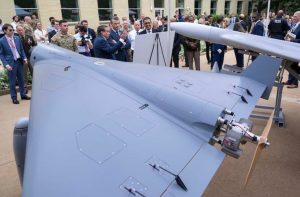

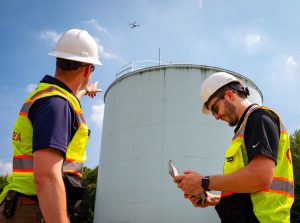



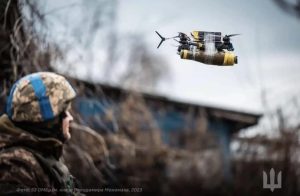


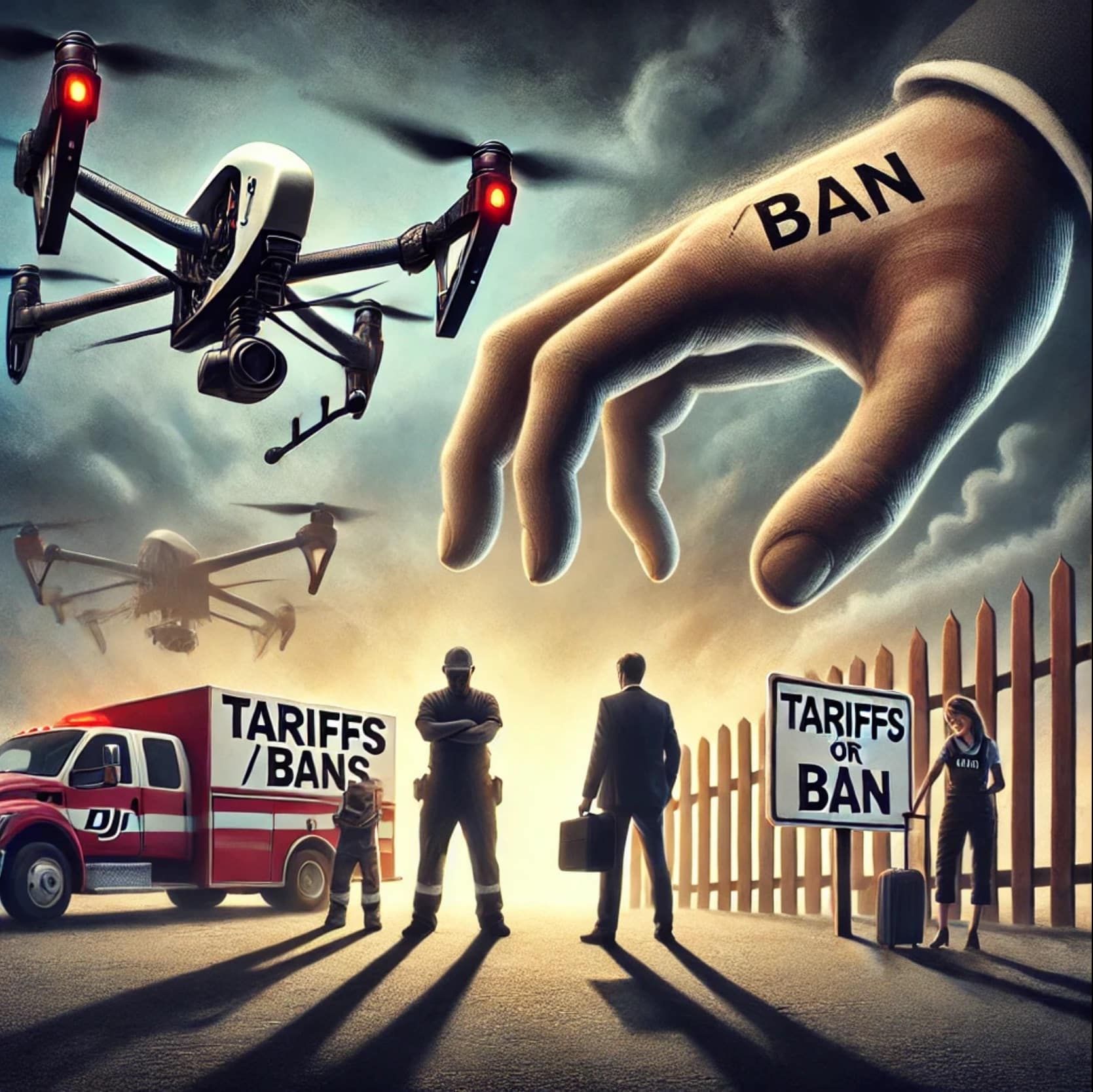
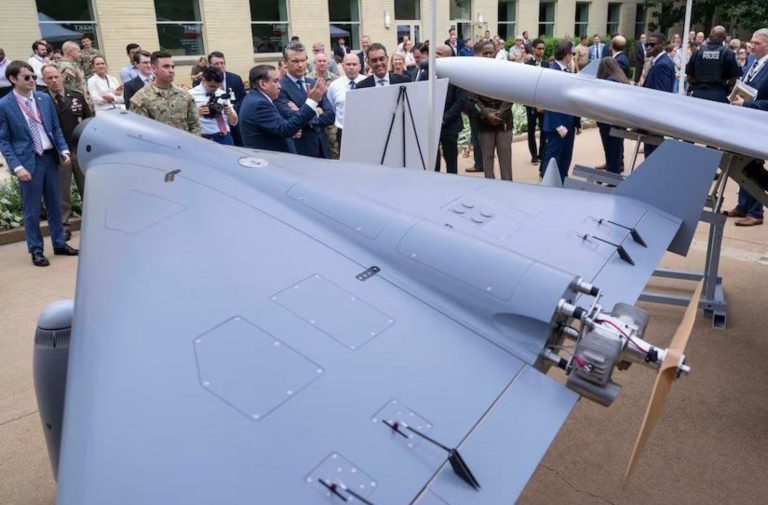
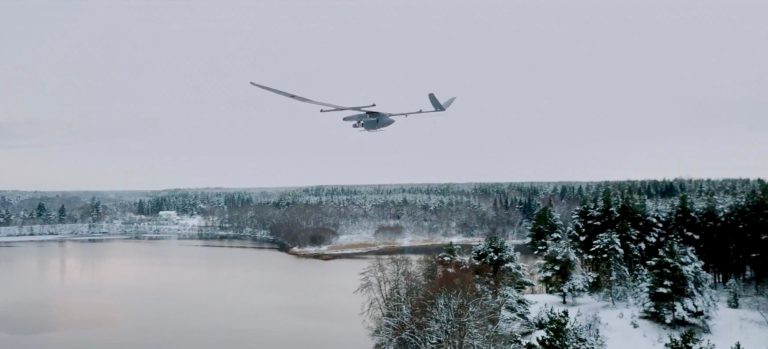
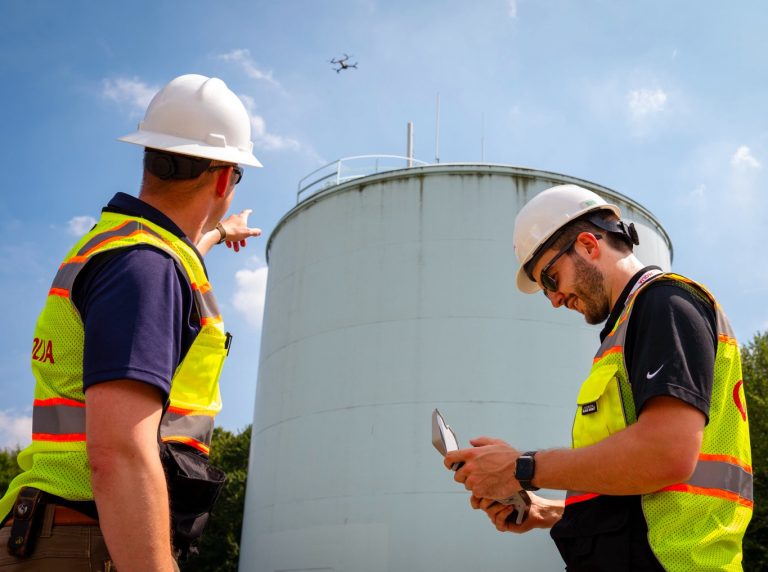

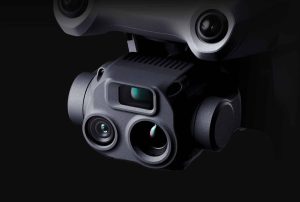



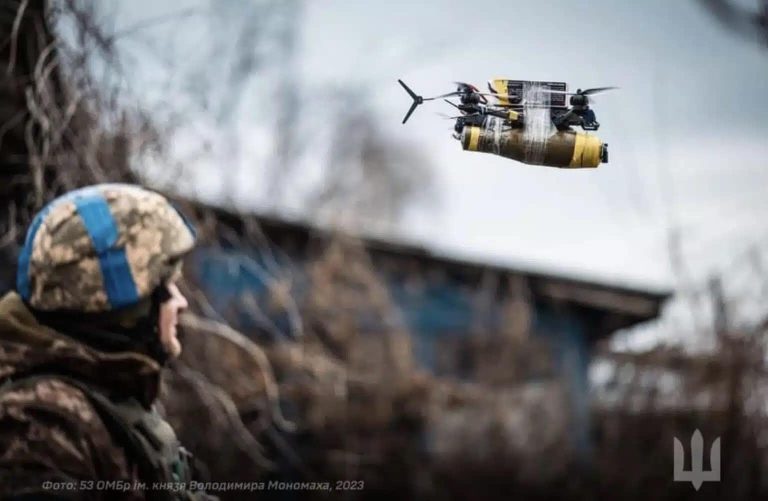

+ There are no comments
Add yours